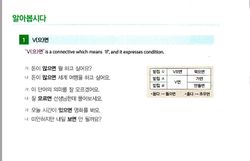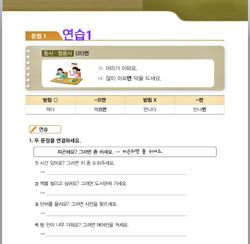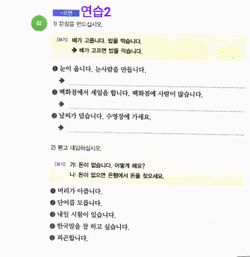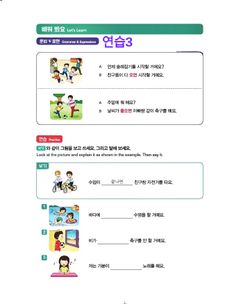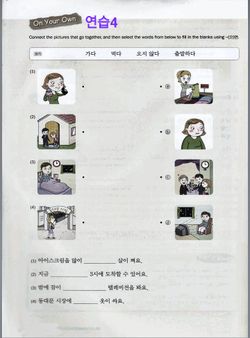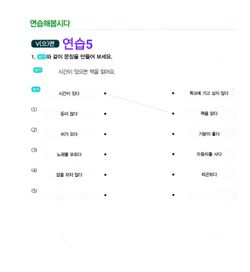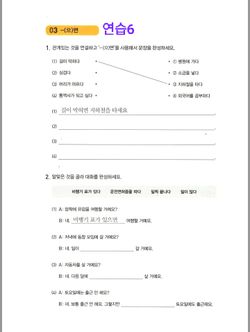Feb 21, 2022
~(으)면
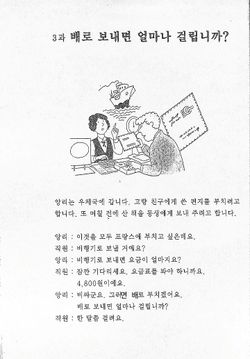

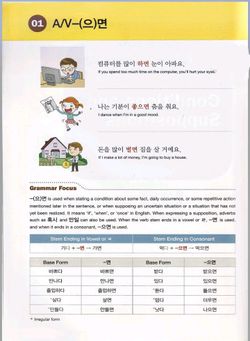
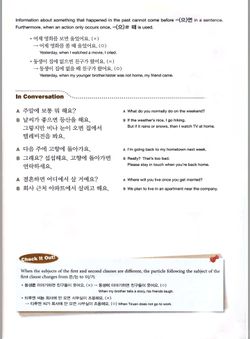
형용사/동사 으면/면 (A/V -으면 / 면 grammar) expresses conditions and assumptions and it attaches after the adjective/verb stem.
~면, 으면 is the connective ending which expresses conditions and assumptions.
The meaning can be ‘if, when’ or ‘once’ in English.)
(으)면 규칙
RULES :
1. You can NOT talk about things that happened in the past (in the second clause).
도착하면 연락했어요 (X)
도착하면 연락하세요. (O)
= Contact me once you arrive
2. If the subject in the first clause (before -면) is different from the subject in the second clause (after -면), both subjects should be marked with 이/가 and not 은/는.
지현씨는 돈이 없으면 재가 계산하겠습니다. (X)
지현씨가 돈이 없으면 제가 계산하겠습니다. (O)
= I’ll pay the bill if Ji-Hyeon doesn’t have any money.
USAGE
1. Verb/ Adjective ending in vowel or ㄹ + 면:
가다 → 가면 (If we go...)
바쁘다 → 바쁘면 (If it is bad ...)
만나다 → 만나면 (If we meet...)
공부하다 → 공부하면 (If I study...)
*살다 → 살면 (If I live...)
*만들다 → 만들면 (If I make...)
2. Verb/ Adjective ending in consonant + 으면:
먹다 → 먹으면 (If I eat...)
있다 → 있으면 (If I have...)
*듣다 → 들으면 (If I listen...)
*덥다 → 더우면 (If it is hot...)
*낫다 → 나으면 (If it is better...)
*짓다 → 지으면 (If they build...)
~만약.... (으)면
Talk briefly about the word 만약. 만약 can be put at the beginning of a clause ending in -면. Adding 만약 at the beginning of a sentence doesn’t affect its meaning, just makes it clear that you’re saying a conditional sentence from the moment you start saying it. So you could say the following:
a. 만약 일찍 자면 일찍 깨어날 거예요.
b. 만약 많이 공부하면 시험을 잘 볼 거예요.
c. 만약 배가 아프면 병원에 가세요.
연습해봅시다~
Let's Practice
1) 집에 도착하다 + 저한테 전화해 주세요.
--> 집에 도착하면 저 한테 전화해 주세요.
2) 날씨가 좋다 + 사진 찍으러 가요.
3) 사진을 찍다 + 보여 주세요.
4) 친구를 사귀고 싶다 + 우리 모임에 오세요.
5) 한국어를 할 줄 알다 + 이것 좀 번역해 주세요.
6) 제가 집에 없다 + 메모를 남기세요.
7) 배가 아프다 + 병원에 가 보세요.
